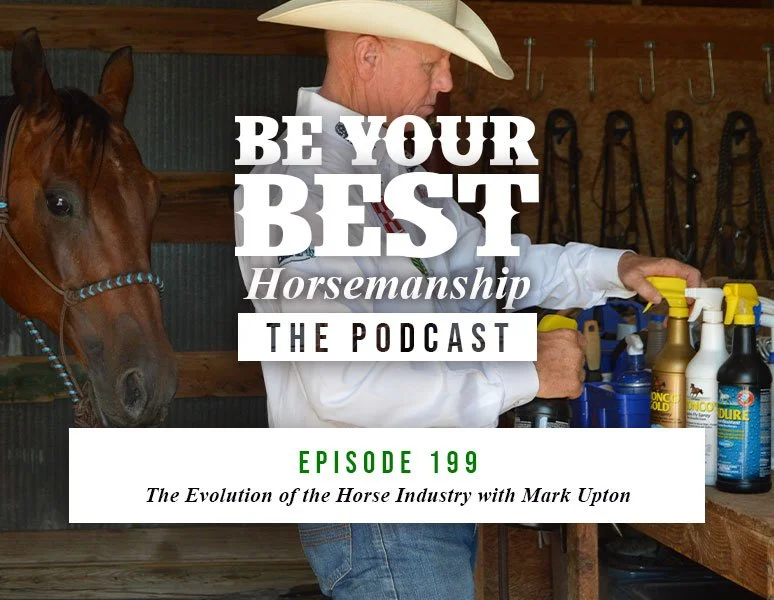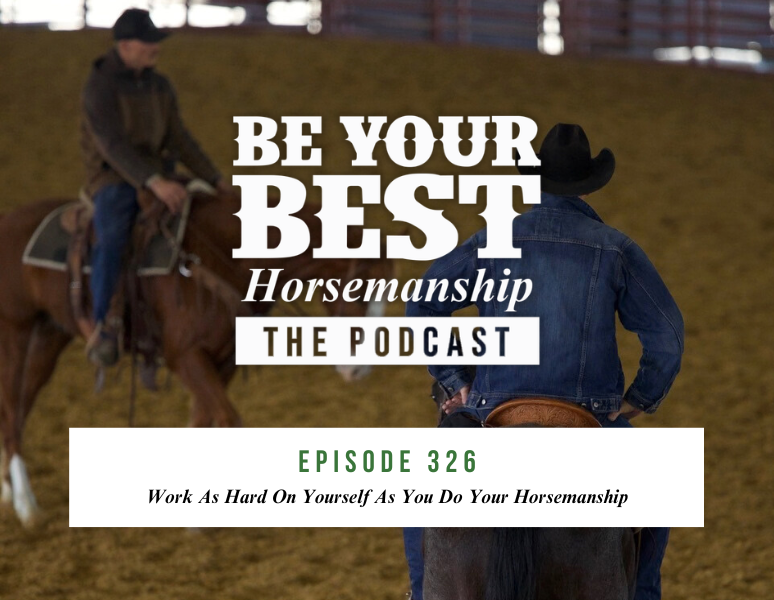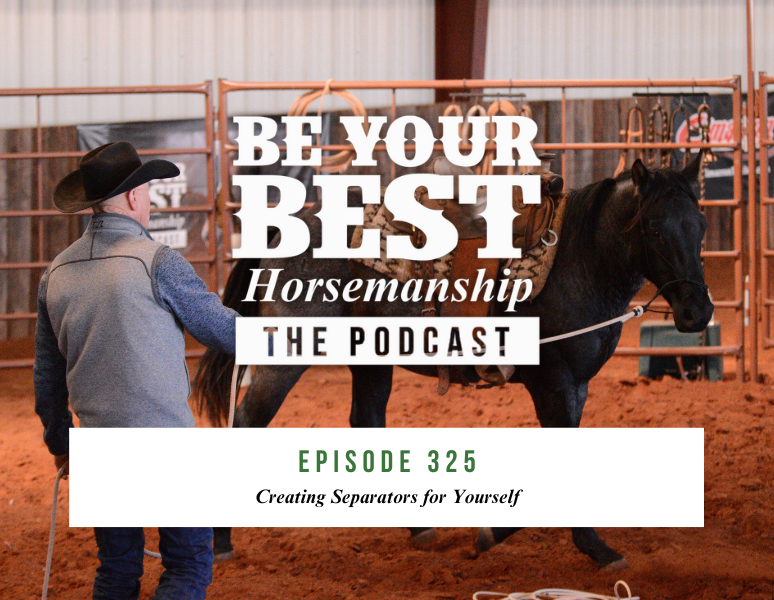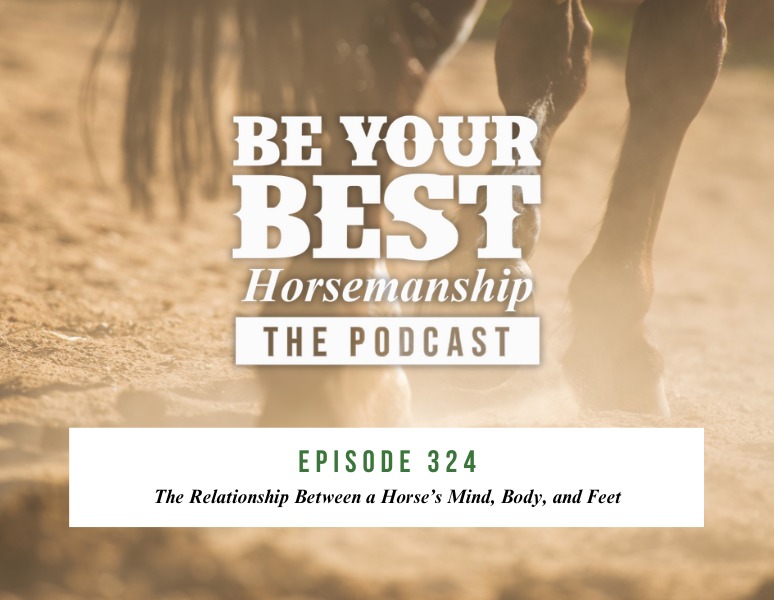Ep 199: The Evolution of the Horse Industry with Mark Upton
On this episode, I am joined by a very special guest, Mark Upton. Mark is a long-time friend, an excellent horseman, and an advocate for the western industry. He is the Senior Director Agricultural Products at Central Life Sciences, a company that produces many premium equine-related products that we use on a daily basis at our training facility. Join us as we chat about our experiences in horsemanship, how the horse industry has evolved, and discuss the outlook of the western industry as a whole.
Interview Notes with Mark Upton of Central Life Sciences
Phil: Mark, we’ve known each other since the 90s, and I’ve ridden a few horses for you over the years. Talk a little bit about the changes you’ve seen in the horse industry since then.
Mark: The horse industry has evolved so much since then. It’s crazy to see, but it’s so exciting to watch how quickly things have evolved. Nowadays, horses are worth more, there’s more at stake, and those horses have to be “broke” enough to compete at the level we need them to. I think the horsemanship industry is where it needs to be, and it’s only going to continue to go up from here.
Phil: Yeah, and one important point I think you brought up there is the definition of “broke” - people have different definitions of this depending on who you talk to. Back in the day, “broke” more or less meant breaking their spirit and making the horse submissive to what you wanted it to do. But now, “broke” has a completely different meaning and a much different standard in today’s horsemanship terms. It means having a foundation that you can go on to do pretty much anything with that horse and be successful at it. It’s a lot different than the way we used to approach it, and it’s not that we were trying to do things wrong back then; we just didn’t know any better. In my eyes, the way we approach horsemanship has evolved from mechanical manipulation to encouraging mental understanding from the horse. Now, everyone is starting to understand that if we present things in a way that the horse understands, the chances of getting a soft, willing response are much greater.
Mark: Absolutely. If you look at horses today – I don’t care whether it’s the rope horse futurities, barrel horse futurities, or cow horse futurities – all of those horses are so advanced, and at such a young age. I don’t know whether it’s the trainers or the horses that have gotten better, but the things these horses can do today is incredible.
Phil: I think it’s both. The thing about this industry is, we all have a growth mentality. From breeding to training to competing, everyone has reached another level. And, when we build those horses from the ground up, our end product is so much more advanced. It seems that the more we learn, the more we learn that there is to learn.
Mark: That’s so true. There’s so much more to learn. Just like what we were talking about earlier with horses being broke. There’s a big difference between being “broke” and gentle. And, I think people are starting to realize what a truly “broke” horse is and how much you can do with one that is started the right way. Another thing that I appreciate about this industry, Phil, is that so many people who are at your level are willing to help those of us who are maybe not doing this full time, but are still trying to get better for themselves and their horses. There are so many people that are willing to help; you just have to be willing to reach out.
Phil: I think one thing that has really progressed our industry is people’s ability to utilize resources. With the knowledge that is out there, people have gotten better about finding and using those resources. People have gotten great about asking the right questions and giving the right context for trainers to be able to help them, even over the phone.
Mark: I’m one of those people who never had a problem stopping and asking for directions if I was lost, because every minute I drove around lost was a minute of my life I couldn’t get back. I take my approach to horsemanship the same way. I would much rather take a minute out of my day to call someone like you and learn from your experiences to save myself the step of going through that same experience myself.
Phil: The quality of the horses, the quality of the horsemen and horsewomen, the quality of the competition - everything has elevated considerably since the 90s. It is so encouraging to see how far we’ve come as an industry. I think it’s as good as it's ever been, and I think it’s only going to get better.
Mark: You’re right, and it’s such a joy to be involved in this industry. People tend to gravitate towards this way of life, and I am proud to be a part of it and raise my kids in it.
Phil: The great thing about this industry too is that you don’t have to be on the road 24/7 to benefit from this industry. Just like you today, Mark - you brought a colt over to ride today, and you have a full time job outside of riding horses, and we’ve had some great conversations today.
Mark: I love going into an office everyday and getting to do something that benefits this industry. I don’t love cleaning stalls everyday, but I love the lifestyle and the work ethic that it creates. We’re supposed to get over 100 degrees this week, and it’s not a matter of sitting in the house until it cools down. No one in this industry takes the summer off. Instead, they think, “how early do I need to get up to get everything done?” It’s such a neat thing to be part of.
Phil: Tell us a little bit about your progression with your horses, what you do after you pick them up from your colt starter, and what you do to keep them where you like them.
Mark: I’ll be the first to admit that I take them along really slowly. I’m not great about progressing one through their training fast, or even moving them into different bits and things like that, so I never hesitate to pick up the phone and call someone if I have a question. I get on them several days a week and expose them to as many things as I can. I try to get them in front of people and have people watch and see if there is anything I can improve on. I ride pastures a lot, but I really just take it slow and try to build their confidence with the things that you taught them.
Phil: Well, here’s something that I think gets missed a lot in our industry – we are all too focused on days or months of riding when we should be focused on hours. There’s a big difference in getting 150-200 hours in a year versus 75-100 hours in a year. It’s all about time in the saddle, because feel, timing and balance are all things that your horse starts to recognize the more time you spend there.
Mark: I agree. Like the other day, all I did was exercise them. I wasn’t actively trying to teach them anything new. And while that’s beneficial, I know that there is a difference in that type of training versus trying to actively teach them something new and progress them quickly.
Phil: That’s the caveat with how the world is today – we’ve all gotten so efficient at getting things done, that naturally, we think our horsemanship needs to be the same way. But, it just doesn’t work like that. We have to take things slow and take that time to help our horses understand and develop that feel. It’s just a process that you can’t rush unless you want to create more problems down the road. It’s unmeasurable how valuable it is to take the time to build confidence in you and your horse. You’re putting them in a position to be successful.
Phil: Tell us about your company and the products that you have, because there are so many that are beneficial to the horse industry and enhance our ability to keep those horses in a good, trainable mentality.
Mark: At Central Life Sciences, we focus mainly on agriculture, specifically pest control. From feed additives for beef and dairy cattle, equine, swine, and other livestock to packaged goods, such as scatter baits or sprays, we cover all of those segments. Our parent company is actually called Central Garden and Pet, so we actually own Farnam, and that company offers tons of great solutions and products for equine fly control. We have a lot of products that will fit into anyone’s operation With our brand Clarifly, we are actually rolling out a product that you can top dress on your feed to help prevent fly control.
Phil: The Farnam products in particular are ones that we use daily here, especially in the summer. And a lot of years, especially with our young ones, a top dressed solution like Clarifly is super beneficial for our colts who may not be super savvy or comfortable with a spray option yet. The fly spray products I love are Endure, Bronco, Bronco Gold and the Vetrolin spray wash. Every time we ride our horses in the summer, we wash them off with the Vetrolin and notice a considerable difference in the amount of flies after those washes. Plus, it conditions the mane and tail to where they look their best.
Mark: One of the things that you do so well, Phil, that other people could learn from is keeping the place picked up. There are two main types of flies that are going to bother a horse, and that is stable flies and house flies. Stable flies are a blood fly, meaning they’ll get a blood meal and then relocate. They tend to gravitate toward areas with weeds and tall grass. So, if you can keep your place mowed and picked up, you eliminate their habitat, and it will be less of a problem. House flies, on the other hand, are filth flies, meaning they gravitate toward areas that are dirty, such as areas with rotted hay or manure. If you keep those areas cleared out, you take away the breeding sites for house flies. Of course, you’re never going to get rid of all of them, so that’s where our products come in to eliminate those remaining pests. It’s amazing how much happier horses are when you can keep those pests controlled.
Phil: That’s so true. Especially when we are working on training the horse’s mind, when there is that distraction of stomping flies and being bitten or irritated by pests, that immediately sets us a step back. Not to mention the soundness issues that can come with horses constantly stomping or kicking a fence trying to get some relief from the biting flies. I think it’s just another one of those small things that can make a big difference in the mental and physical soundness of your horse. When you can eliminate those mental distractions and annoyances, you’re already that much further into your training process.
“Be Your Best Horsemanship” is brought to you by Silver Lining Herbs, Classic Equine, Martin Saddlery, Better Horses Network, Purina, Healthycoat, CINCH, Starbar, and Clarifly. These brands have been part of the Phil Haugen Horsemanship team for many years, and their products continue to play an integral role in the success of our performance horse training program. To support these brands, visit our Sponsors tab.




